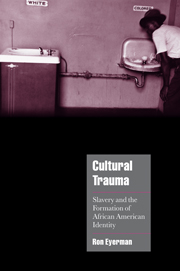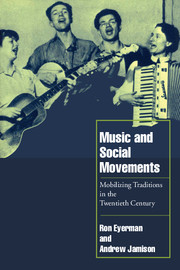Cultural Trauma
In this book, Ron Eyerman explores the formation of the African-American identity through the theory of cultural trauma. The trauma in question is slavery, not as an institution or as personal experience, but as collective memory: a pervasive remembrance that grounded a people's sense of itself. Combining a broad narrative sweep with more detailed studies of important events and individuals, Eyerman reaches from Emancipation through the Harlem Renaissance, the Depression, the New Deal and the Second World War to the Civil Rights movement and beyond. He offers insights into the intellectual and generational conflicts of identity-formation which have a truly universal significance, as well as providing a compelling account of the birth of African-American identity. Anyone interested in questions of assimilation, multiculturalism and postcolonialism will find this book indispensable.
- A broad historical perspective
- A theory of African-American identity with universal significance
- Very relevant to contemporary society
Reviews & endorsements
"Slavery has had a significant, long-lasting effect on US history and society. Along with Elizabeth Bethel in ^The Roots of African-American Identity(1997), Eyerman clearly traces this long, sometimes agonizing, process for anyone engaged n serious work on US race relations." Choice
Product details
January 2002Paperback
9780521004374
316 pages
227 × 154 × 20 mm
0.507kg
Available
Table of Contents
- 1. Cultural trauma and collective memory
- 2. Remembering and forgetting
- 3. Out of Africa
- 4. The black public sphere and the heritage of slavery
- 5. Memory and representation
- 6. Civil rights and black nationalism
- References
- Index.







